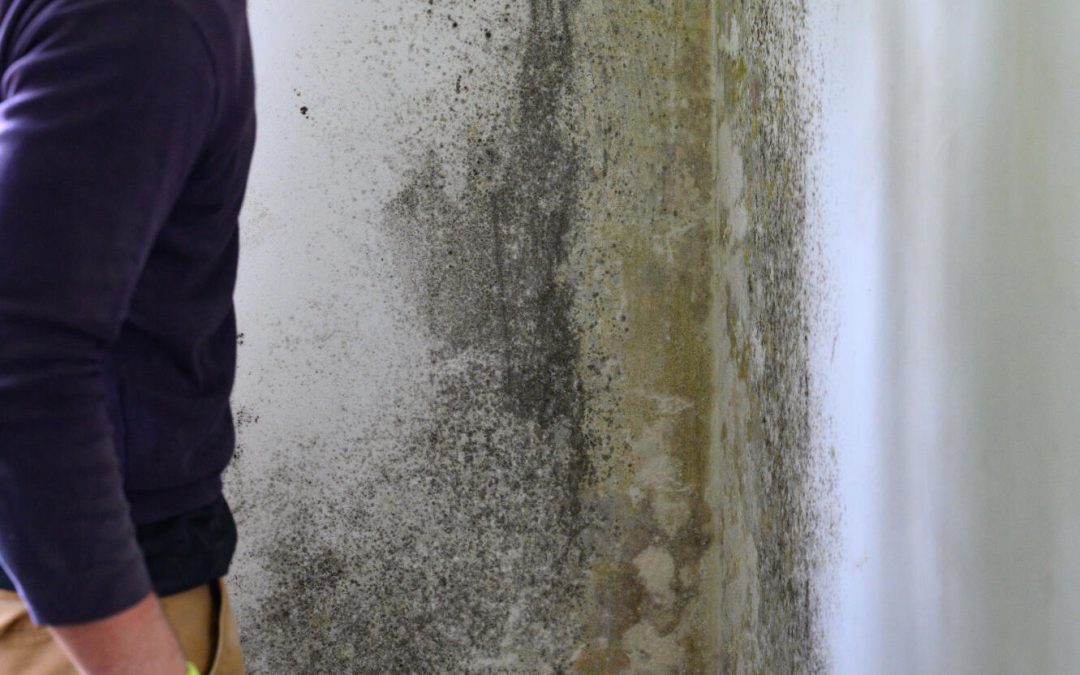Can mold cause cancer? The National Cancer Institute found that a certain type of mold is closely associated with cancer.
Different types of mold can occur both outdoors and indoors. Mold can produce spores that float in the air, causing severe health issues. Mold thrives in warm and moist environments and can grow on various surfaces such as wood, glass, plastic, and fabric.
Mold exposure can cause significant health risks and issues that may increase the risk of cancer. The best way to protect yourself and your family is to ensure your house doesn’t have mold. Read on as we explore all you need about mold and its link to cancer.
What Is Mold?
The most commonly understood meaning of mold is that it’s a fungus. It thrives by breaking down animal and plant matter in the environment. Mold can grow anywhere where organic matter and moisture are found.
It reproduces or spreads through tiny spores that are light enough to travel through air. This means it can cause various respiratory health issues once it enters your home. The main types of mold are:
- Black mold
- Aspergillus
- Penicillium
- Alternaria
Black Mold
Scientifically known as Stachybotrys chartarum, black mold is a toxigenic mold that you may find in damp areas. Black mold is closely associated with poor indoor air quality and cancer. Due to its toxic nature, let a professional conduct a mold inspection and eliminate black mold.
Aspergillus
This type of mold is allergenic, and some species are also toxigenic. The appearance often varies with colors such as green or white. You may find Aspergillus in damp walls, carpets, and organic products.
The health risks associated with Aspergillus are mainly respiratory infections. Aspergillus is allergenic and can cause severe reactions in people with respiratory issues such as asthma. People with advanced sarcoidosis, tuberculosis, and emphysema may get Aspergilloma.
Penicillium
This type of mold appears to be blue or green in color and is allergenic. You will likely find it on food products such as bread and damp areas that may have suffered water damage. Some Penicillium species produce very harmful mycotoxins, especially when ingested.
Alternaria
The mold commonly found in damp windows and bathrooms is likely Alternaria. It’s an allergenic, which poses a significant health risk to people with respiratory issues. Although it may not directly cause cancer, prolonged exposure to Alternaria worsens respiratory conditions.
Mold Health Effects
The Environmental Protection Agency found that mold can cause serious health problems. Molds are either allergenic or toxigenic and can cause adverse health effects when they get into your body.
But can mold cause cancer? The answer is still ambiguous because there is little scientific showing that mold can cause cancer.
However, prolonged mold exposure can increase the health issues affecting you or your family, especially if they have pre-existing respiratory conditions. Some of the mold-related illnesses are:
- Increased asthma attacks
- Allergic reaction
- Long-term health effects
Increased Asthma Attacks
Mold exacerbates asthma attacks and can make the condition worse. Mold exposure can trigger asthma attacks and cause severe symptoms such as shortness of breath, tightening of the chest, coughing, and wheezing.
The impaired lung function of people with asthma is further worsened by exposure to mold in the long term. Consequently, asthma patients may experience more frequent and violent attacks.
Given the numerous health issues associated with mold, the costs for mold inspection in Orlando, FL, shouldn’t be a reason you allow this dangerous substance in and around your home. Get a professional to conduct mold testing and inspection to help you make your home safe.
Allergic Reactions
Mold can cause allergic reactions that vary in intensity based on sensitivity. Mold spores can trigger different allergic reactions, such as:
- Skin irritation
- Irritation of the nasal passages resulting in excessive sneezing
- Runny nose and itchy eyes
The allergic reactions caused by mold will likely increase in severity if you or your loved ones touch them. If you or your loved one has a weakened immune system, then exposure to mold may likely cause exacerbated issues that can even increase the risk of cancer.
Long-Term Health Effects
The health issues caused by mold may not be apparent immediately. You and your loved ones may be in perfect health even if your home has mold for a long time. However, the continued exposure to mold has been closely linked to chronic health issues such as:
- Lung inflammation known as hypersensitivity pneumonitis
- Chronic sinus infection that is resistant to treatment
- Lung infections
Mold spores can also travel to the digestive tract and cause further health complications. In addition, certain types of mold produce mycotoxins. The National Library of Medicine found that mycotoxins have carcinogenic potency, meaning they increase the risk of cancer.
How to Prevent Mold
The mold exposure risks are far too significant for anyone to ignore. You must ensure both your indoor and outdoor areas are free from mold. Some of the best mold prevention tips are:
- Improving air circulation
- Cleaning your home regularly
- Fixing drainage issues and keeping your home dry
- Getting regular mold inspection and testing
Remember that mold can grow anywhere, even in outdoor spaces made of concrete. But how would you know if your home has mold? Some of the key signs are:
- Green, white, black, or brown colored mold
- Musty odor
- Drainage problems
- Increased allergy reactions
- Moisture build-up is visible through peeling wallpaper
Hiring a professional is the best way to fight off mold in your home. Our experts can make your home safer and answer all your questions regarding mold.
Can Mold Cause Cancer? Discover the Facts Today
Can mold cause cancer? This is a complex question, as research is ongoing on the link between mold exposure and cancer. Certain types of mold produce mycotoxins, which can increase the susceptibility to various types of cancer.
Mold can also cause serious adverse health risks and exacerbate existing respiratory conditions. At Elite Mold Services, we have certified and licensed mold inspectors who can help you get rid of mold. Contact us today to learn the facts and protect your health from mold.

